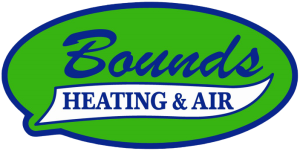5 Tips for Reducing Airborne Allergens In Your Home
HOW TO REDUCE ALLERGENS IN YOUR HOME
Use these tips to breathe easier at home this allergy season!
1. Upgrade your HVAC system’s air filter.
The higher your air filter’s efficiency rating is, the more effectively it will capture airborne particles. If you’re currently using a MERV 7 filter, consider upgrading to a MERV 11 or 13. Although these filters typically cost more, they do a much better job at filtering out tiny particles like pollen, and the rating isn’t so high that it will impede airflow through your system.
2. Take off your shoes at the front door.
We can bring all sorts of things into our homes on our shoes: dirt, dust, pollen, and lots of germs. Avoid this problem by taking your shoes off at your front or back door and placing them on a shoe rack in your entryway.
3. Replace carpeting with hard flooring.
Carpeting can harbor a lot of dust, dander, and other allergens, and every time you walk across it, those particles can get stirred up into the air. Wherever possible, replace your carpeting with materials that are easier to deep clean, like wood or vinyl.
4. Wash or dry your bedding in warm temperatures weekly.
Dust mites are a common allergen in comforters, sheets, and pillowcases, and unfortunately, cold water won’t get rid of them. To remove dust mites, you need to wash your bedding in water that’s at least 130°F or dry your bedding at 130°F if washing it in hot water will damage it.
5. Declutter and dust often.
The more clutter your home has, the harder it is to keep clean and dust-free. When you are dusting, don’t forget often-neglected areas such as:
- Air vent and exhaust fan registers
- Window treatments
- Lampshades
- Areas underneath furniture
- Ceiling fans
- Houseplants
Still feeling sneezy? At Bounds Heating & Air, we offer top-of-the-line indoor air quality solutions throughout Gainesville, including whole-home air purifiers and UV lamps. Contact us online or give us a call at (352) 472-2761 to learn more about how we can help you.




 A typical family can generate a considerable quantity of pollutants, such as pollen, dander, smoke, dust, and other irritants, as they go about their daily life. These contaminants can be continually recycled and circulated by the home’s HVAC system. As an
A typical family can generate a considerable quantity of pollutants, such as pollen, dander, smoke, dust, and other irritants, as they go about their daily life. These contaminants can be continually recycled and circulated by the home’s HVAC system. As an  Typically when people experience problems with their home air quality, they associate the issue with malfunctions within the HVAC system as a whole. Although, one thing that people tend to overlook is their air filter. Do you remember the last time you changed your air filter? Air filters serve as a barrier that prevents harmful debris, pollutants, pollen, and dust, from entering into your home. Depending on the amount of activity and or pets in your home, it is recommended to change your air filters every 60 to 90 days. Lack of replacing air filters in your home can lead to:
Typically when people experience problems with their home air quality, they associate the issue with malfunctions within the HVAC system as a whole. Although, one thing that people tend to overlook is their air filter. Do you remember the last time you changed your air filter? Air filters serve as a barrier that prevents harmful debris, pollutants, pollen, and dust, from entering into your home. Depending on the amount of activity and or pets in your home, it is recommended to change your air filters every 60 to 90 days. Lack of replacing air filters in your home can lead to:


 Air filters are your home’s first line of defense against poor
Air filters are your home’s first line of defense against poor 